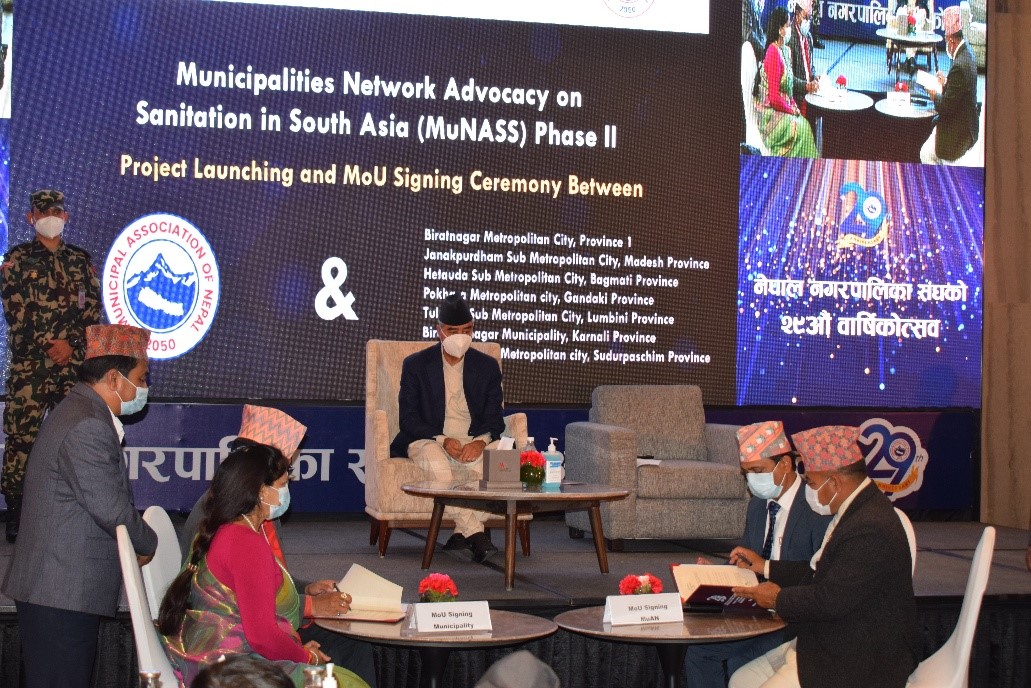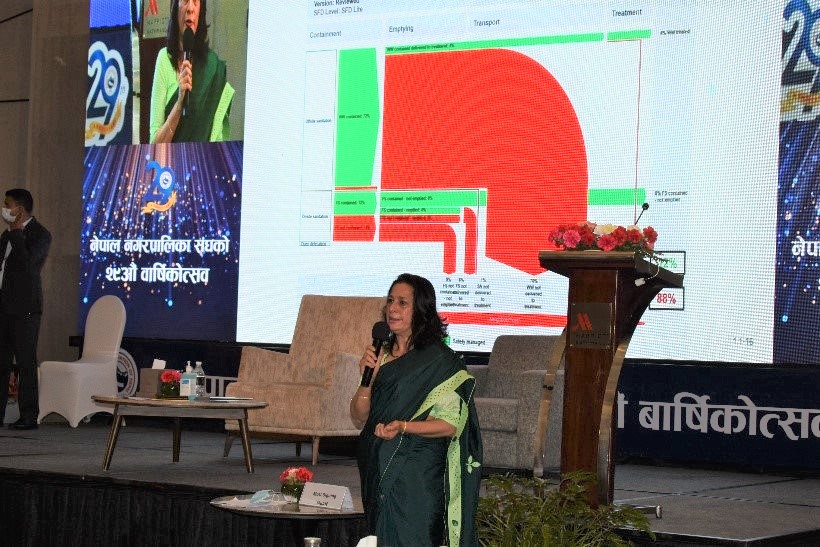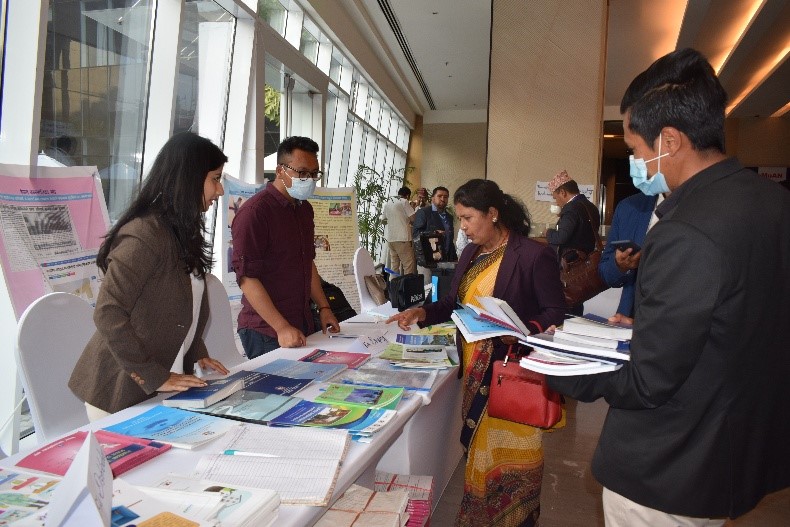
Municipalities Network Advocacy on Sanitation in South Asia (MuNASS) Phase II Project Lunching and MoU Signing Ceremony was successfully conducted in presence of chief guest Rt. Honorable Prime Minister Sher Bahadur Deuba on the auspicious occasion of 29th Establishment Day of Municipal Association of Nepal (MuAN) on 13 March, 2022 at Hotel Marriot Kathmandu. The Memorandum of Understanding (MoU) was signed with following seven municipalities of seven provinces.
- Biratnagar metropolitan city, Province 1
- Janakpur sub-metropolitan city, Madesh Province
- Hetauda sub-metropolitan city, Bagmati Province
- Pokhara metropolitan city, Gandaki Province
- Tulsipur sub-metropolitan city, Lumbini Province
- Birendranagar municipality, Karnali Province
- Dhangadhi sub-metropolitan city, Sudurpaschim Province
With financial support and execution from Bill and Melinda Gates Foundation (BMGF) through United Cities Local Governments Asia Pacific (UCLG ASPAC), the project will be implemented by MuAN in technical support of Environment and Public Health Organization (ENPHO). The project aims to develop and demonstrate innovation on safely managed sanitation to achieve SDG 6.2, mainstreaming into regional agenda, paying special attention to the needs of women and girls, and those in vulnerable situations. The project will be continued at 5 pilot municipalities of Phase I and replicated in seven municipalities of seven provinces. Also, Shit Flow Diagram of 65 municipalities will be developed in Phase II of the project.
Rt. Honorable Prime Minister Sher Bahadur Deuba said, “It’s essential to ensure the provision of safe water, sanitation, green area, managed municipal infrastructure, road, and sewerage including others for sustainable urban development. Most of the municipalities in Nepal is facing haphazard urbanization causing negative impact on the natural beauty as well as originality of the place. Also, cities are turning into unsafe habitat day by day. In this context, I request to develop action plan to create the model municipality having original identity; applying the integrated environment friendly approach.”
Ashok Kumar Byanju Shrestha, President, MuAN said, “Local government should be appreciated and given credit for the improved developmental activities and ownership earned by community people on the action. Local government has very crucial role on enhancing cities’ civilization, culture and providing basic needs to achieve sustainable development goal by 2030.”
Dr. Roshan Raj Shrestha, Deputy Director, BMGF said, “Recent Joint Monitoring Program (JMP) report by UNICEF and WHO shows that Nepal is leading country in south Asia to achieve the availability of basic sanitation status. It is a proud moment but is not enough. To achieve the SDG target of 6.2, faecal sludge and wastewater should also be treated and disposed safely along with accessibility of improved sanitation facilities for all. Thus, Citywide Inclusive Sanitation (CWIS) movement has been initiated globally to achieve SDG 6.2. In addition to infrastructure development, the institutional arrangement should also be developed to ensure the sustainability. Municipalities has very important role on CWIS however central government has equally important role to support on the resources management. Government should establish the regulatory bodies and develop monitoring system to provide required services for achieve SDG 6.2. I believe, Nepal can lead on achieving SDG 6.2 as well. We are glad to support recently formed Citywide Inclusive Sanitation Association of Nepal (CWISAN) which is formed to accelerate the CWIS movement in Nepal.”

Bhawana Sharma, Executive Director, ENPHO said, “Citywide Inclusive Sanitation concept is evolving to ensure the public health, environment and economics. It’s time to adopt evidence based CWIS with integrated approach engaging the community and enhancing the capacity of the stakeholders”.
Kalanidhi Devkota, Executive Director, MuAN said,” As per Nepal Constitution 2075, every person shall have the right to live in a healthy and clean environment. To ensure the basic human right to live in clean environment, everyone should play an important role equally from Prime Minster to Ward Member”
Mayors and Deputy Mayors of the municipalities, and representatives from different organizations actively participated on the event. Moreover, a stall exhibition ran as a side event displaying and disseminating messages related to FSM and urban sanitation. The stall was visited by participants of the event.






